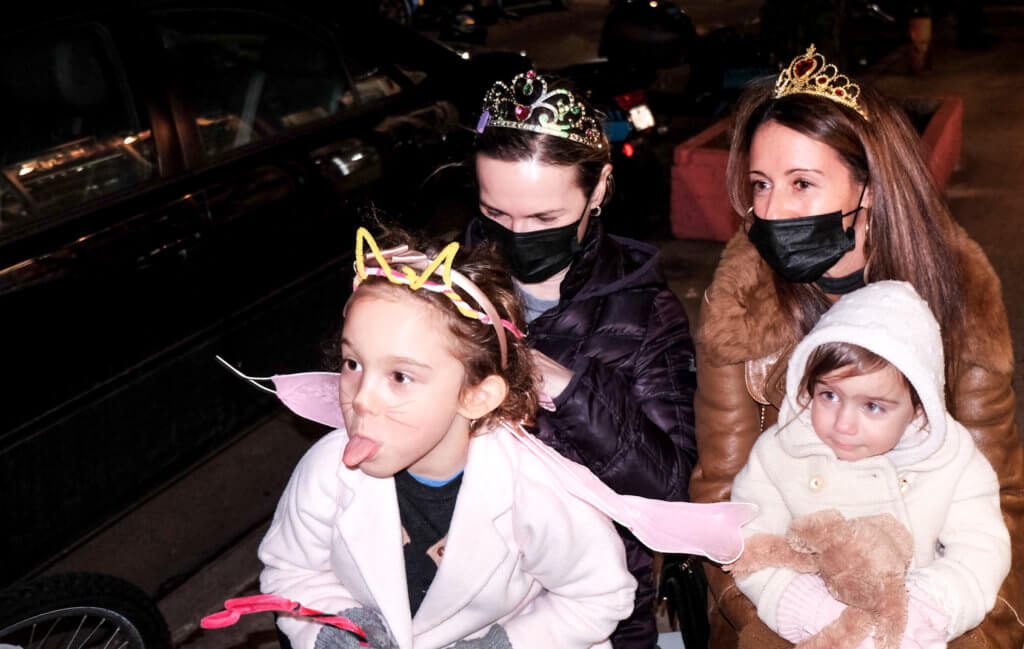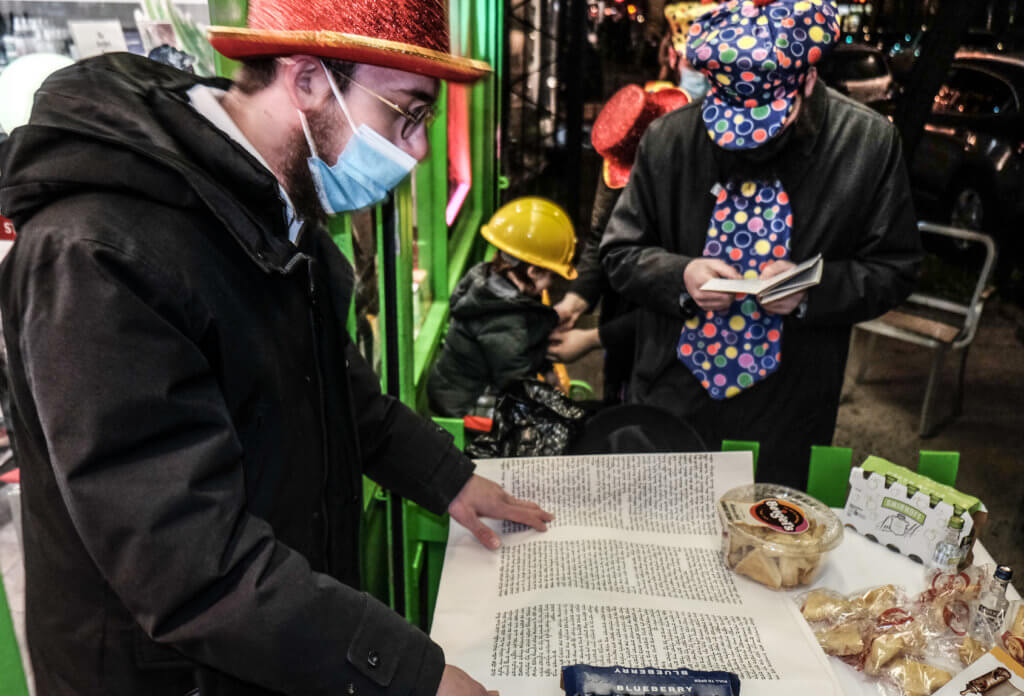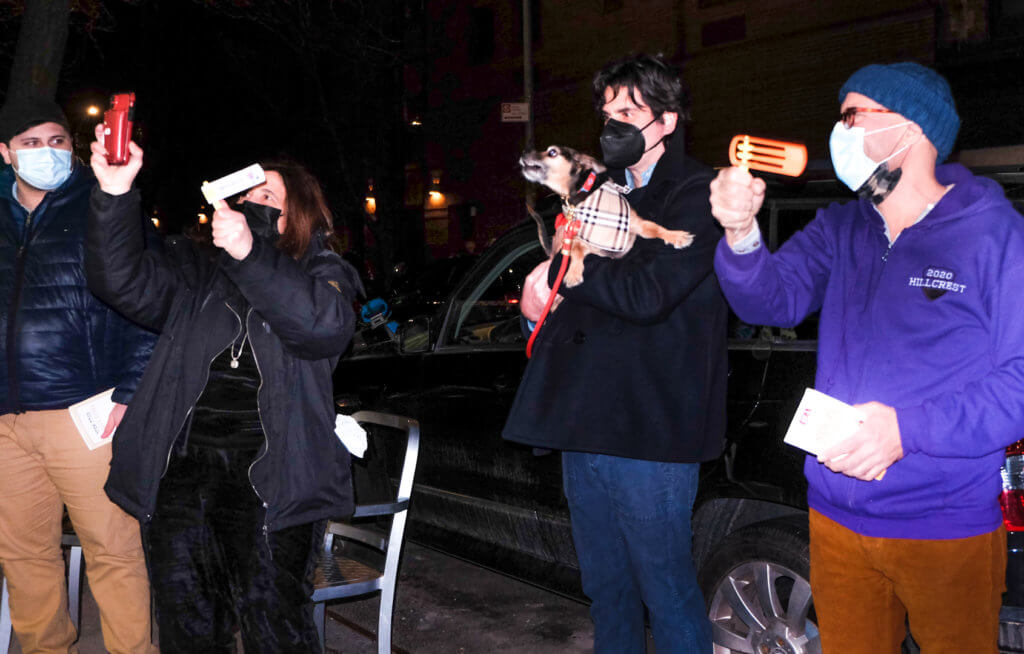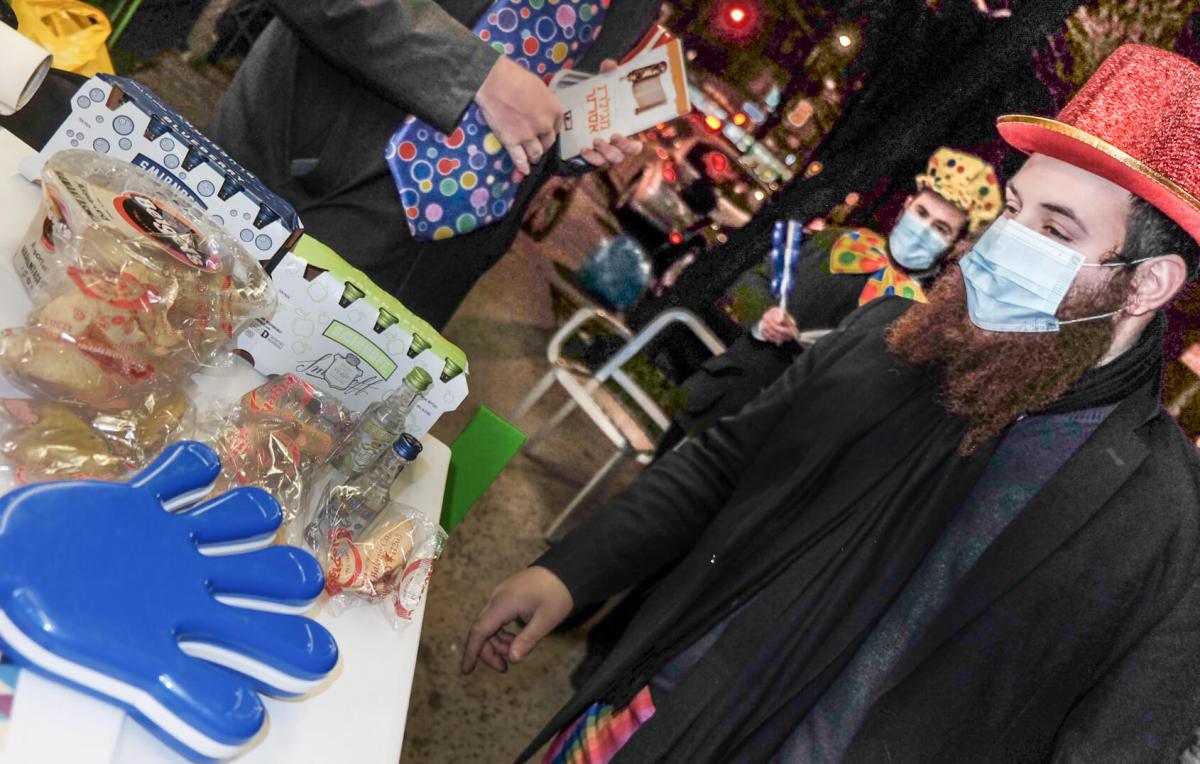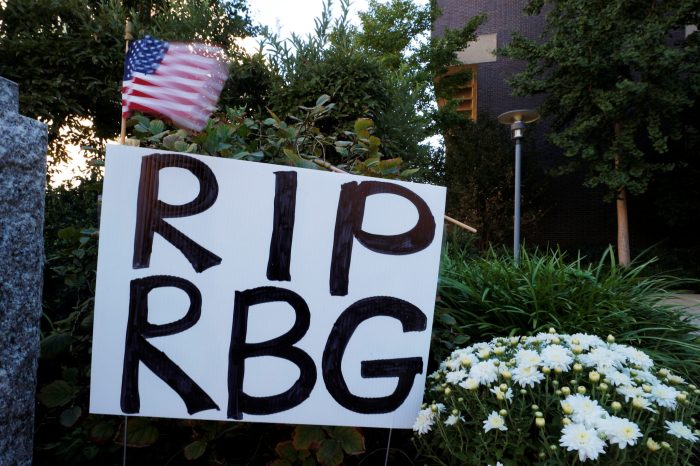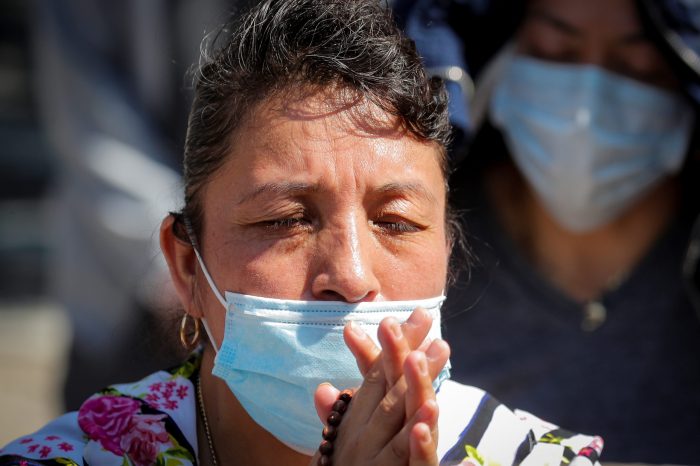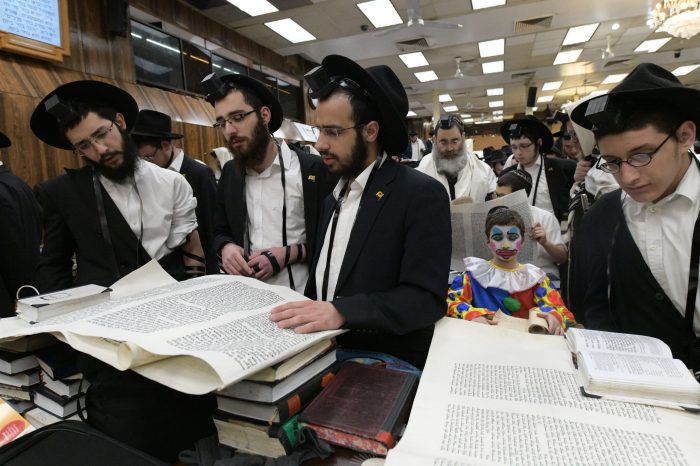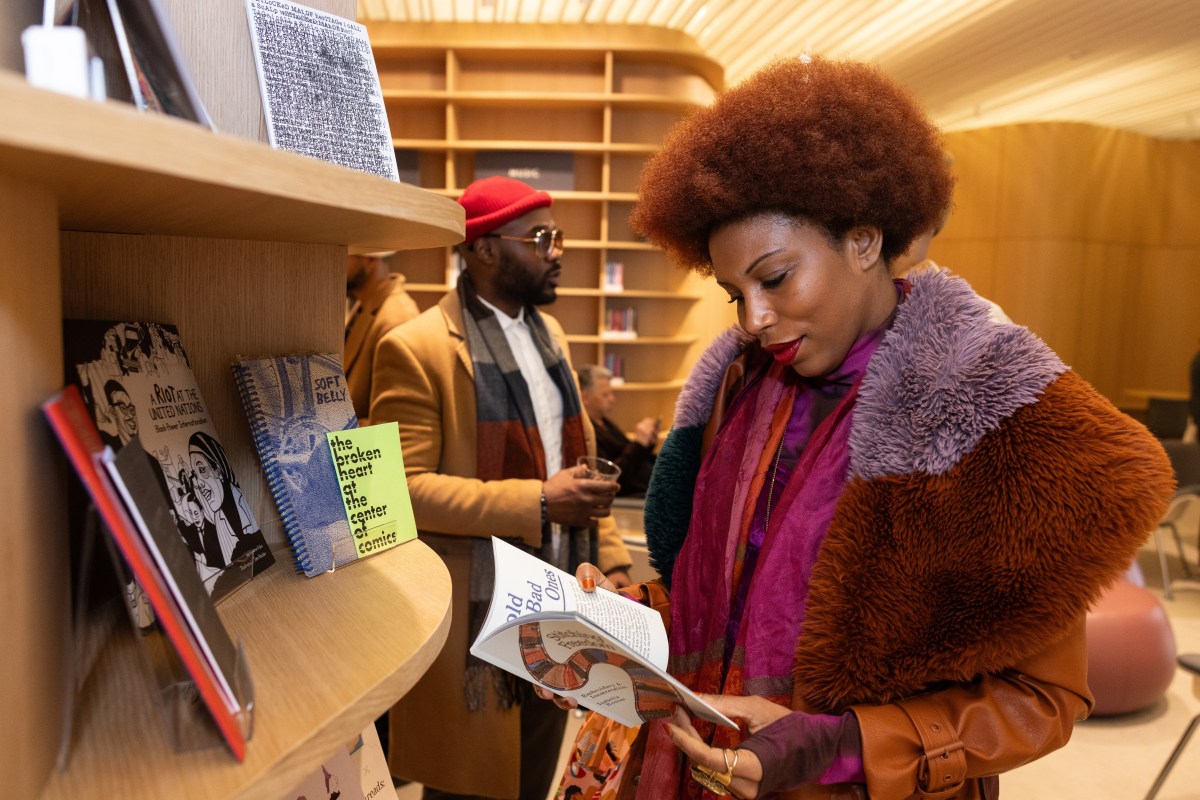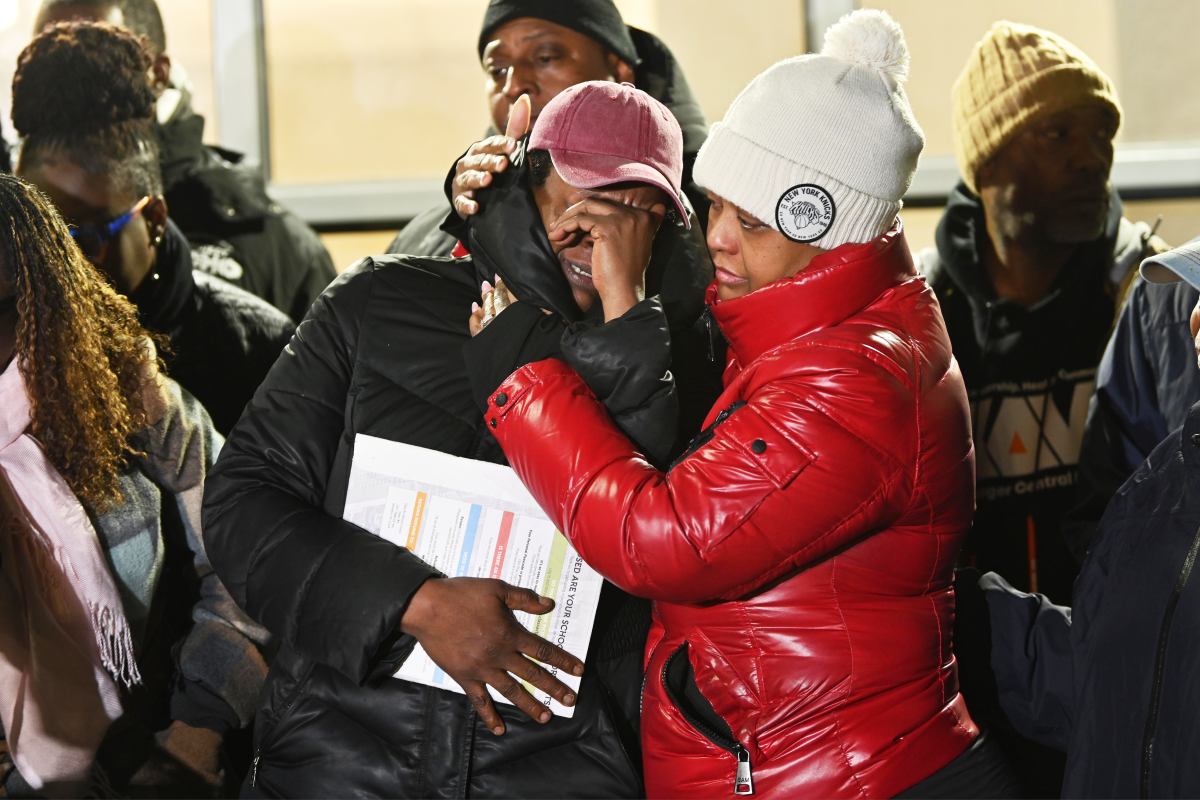The word “megillah” has definitely entered American slang. According to Merriam-Webster, it is defined as a long involved story or a complicated production. But, coming from Hebrew, “megillah” actually means scroll or volume, and is likely to be used in reference to the biblical Book of Esther, which is read aloud at Purim celebrations.
In a much-abbreviated explanation, the Book of Esther, tells the story of the power-hungry evil Haman who insinuates himself with the King of Persia and plans to kill all the Jews, a plot foiled by Queen Esther and her cousin Mordechai.
A holiday when costumes and drinking are festivity essentials, Purim can possibly be called the Jewish version of Carnival jubilating in this thwarted scheme.
Pandemic or not, New Yorkers celebrated the holiday last Friday.
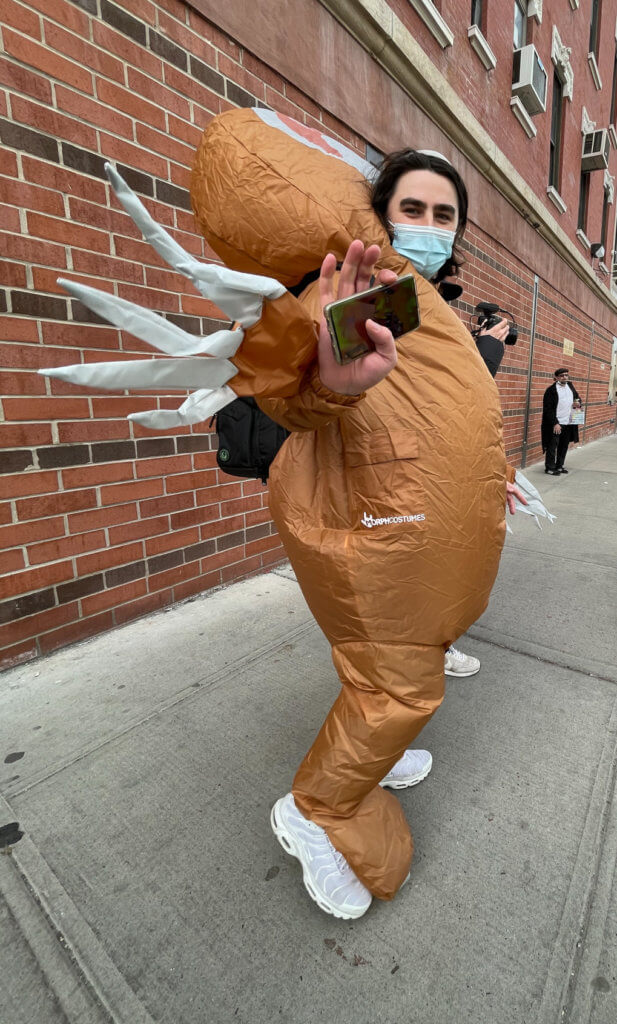

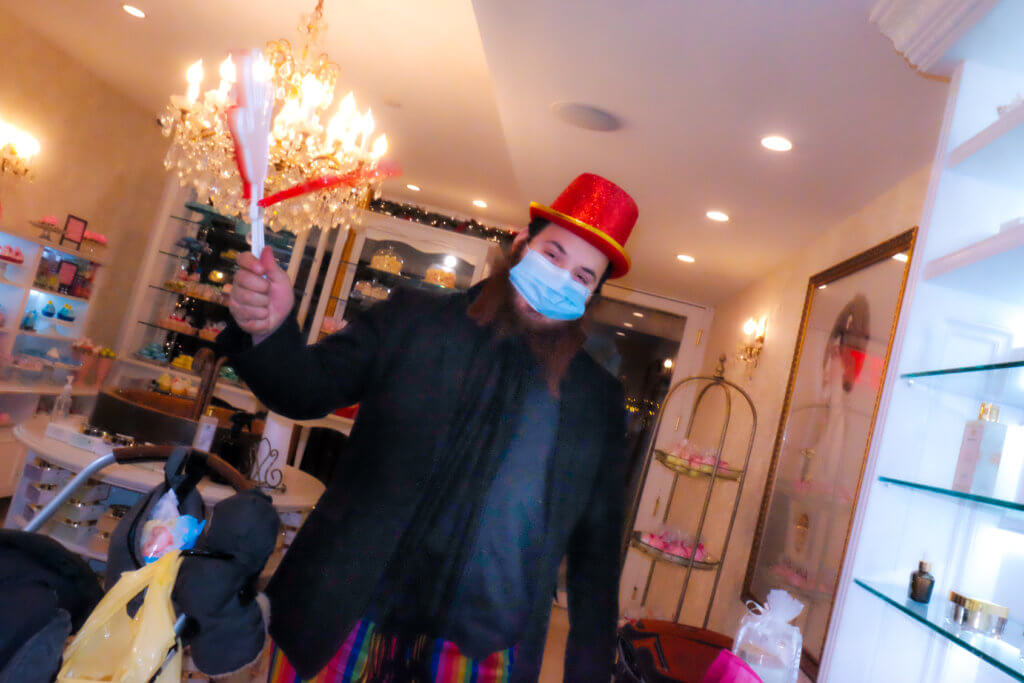
Abundantly available in bakeries around this time, holiday hamantaschen are joyfully eaten. Said to be shaped for the three-cornered hat worn by “bad guy” Haman, triangular cookies are filled with the traditional mohn (poppy seed) or lekvar (prune jam). The name translates as Haman’s pocket.
Moishe’s Kosher Bakery on Grand near East Broadway —its original location at Second Ave. by E. 7th sadly closed two years ago—soldout their hamantaschen, offering the traditional fillings plus a slew of varieties—raspberry, apricot, chocolate and mango.
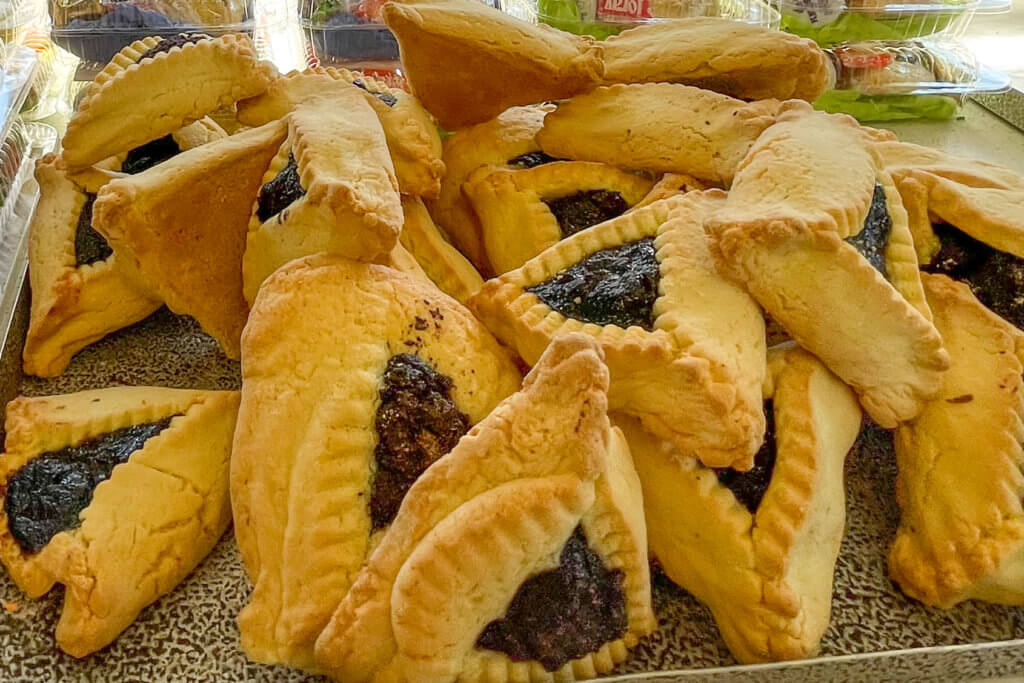
Correct holiday adherence specifies hearing the whole story— read from the Megillah scroll, in Hebrew—potentially taking 20 minutes. In years past, Mitzvah Mobiles traversed city streets offering Jewish New Yorkers a chance to hear the whole Megillah.
On the sidewalk outside of Thompson Chemists on Thursday night, socially-distanced observants listened to the lengthy Megillah reading, booing at the sound of the name of Haman.
Yehuda Pevzner brought friends and a Megillah reader from Crown Heights in order that Soho residents could celebrate properly, rewarding participants with hamantaschen and vodka afterwards. This is the second year the Megillah has been read at the pharmacy, which during non-pandemic times is known for its bi-weekly country western musicales.
Plays called Purim spiels—satiric, comic or theatrical parodies also accompany the holiday. The downtown Jewish congregation Lab/Shul produced a “Preposterous Pandemic Post Patriarchal Prophetic Purim Portal.”
It’s Purim artist-in-residence Elana June Margolis with Lab/Shul’s team of ritualists and radicals crafted a fresh narration of the Purim story with an online evening of decadent and deranged offerings.
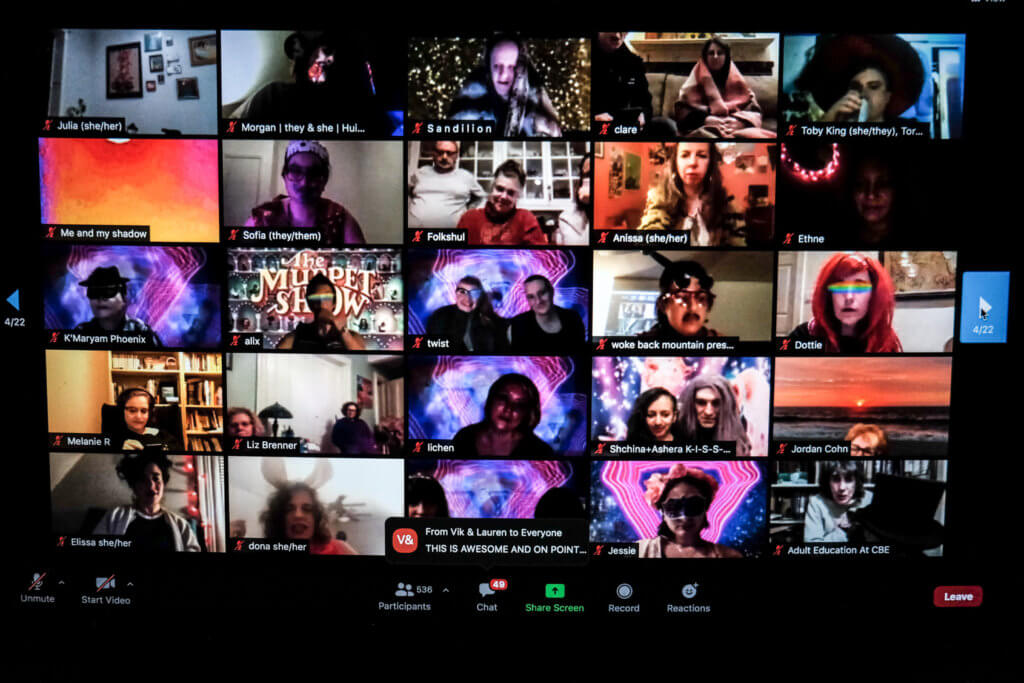
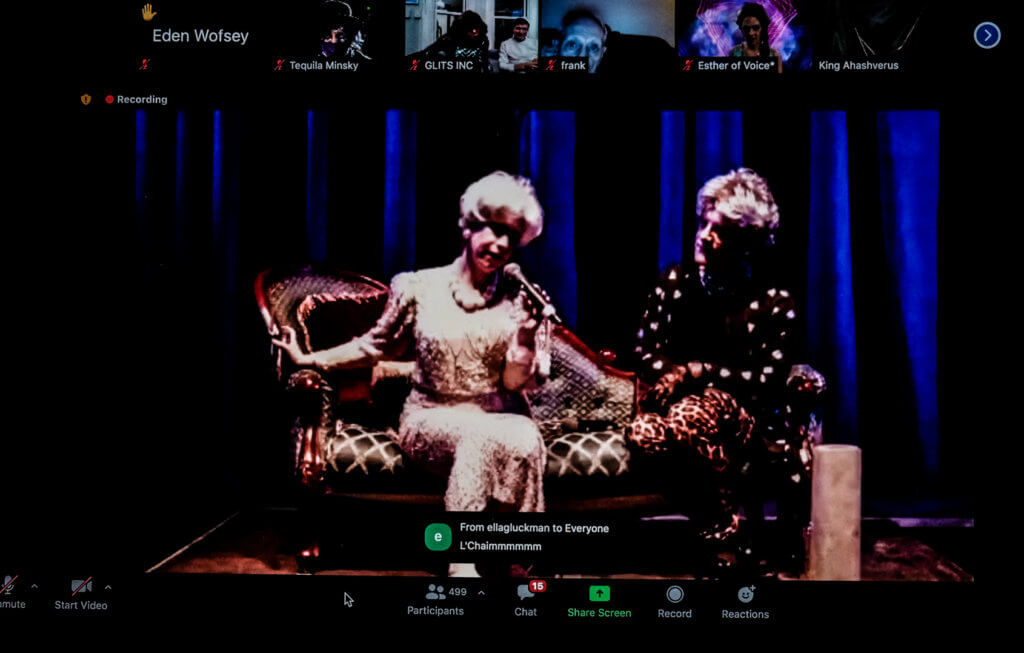
By Zoom to an audience of well over 550, many costumed in their living rooms, performers transmitted an inspired and awe-worthy production.
Rabbi Amichai revived his drag queen persona Rebbetzin Hadassah Gross speaking from the Queen Esther Retirement Home. There were a slew of Esthers during this multi-hour— briefest intermission included—“R” rated production.
The night of raucous revelry continued for another hour with a post-performance DJ-driven dance party, still on Zoom, hosted by Bushwick’s House of Yes.
One knows that Purim is a serious holiday when in New York alternate side of the street parking is suspended. With obligingly mild February weather, in more observant neighborhoods, costumed residents spent the day delivering baskets of Purim foodstuffs for a grand time to be had by all.
